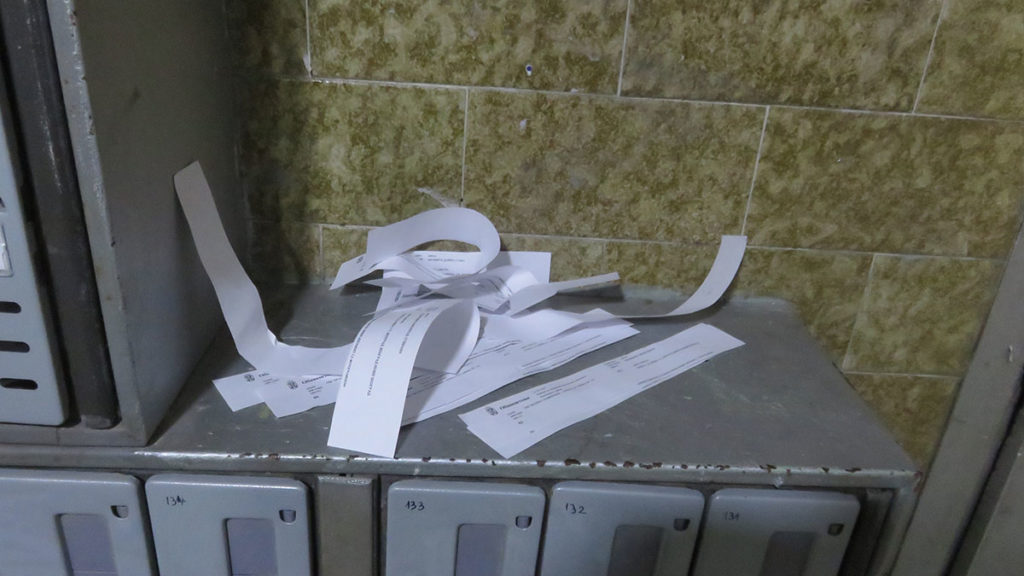
A boycott is the last polite, peaceful means to put pressure on the current regime. Once the boycott is over, any subsequent action against the illegitimate regime will by necessity be less and less polite and peaceful. That doesn’t have to be bad news. The current regime, led by Vucic, has shown that it is ready to give in to any strong and well-organized pressure. We saw that, for example, when lawyers and taxi drivers went on strike. The recent demonstration of great love for football fan / criminal groups (I am referring to “the derby”) also illustrates the regime’s willingness to negotiate with anyone who is able to expose it to a convincing threat.
Can the people of Serbia, apart from lawyers, taxi drivers, and criminal groups, expose the regime to a convincing threat with their boycott of the election? In the first step, no, they can’t. I believe we will see all sorts of things on Sunday, June 21st. The regime will fix the turnout and give mandates to their “favorite” opposition – thousands of democratic flowers will bloom in the regime media on Sunday. Even though the winner is known, the night of June 21st/22nd will not be completely uninteresting: since there are no clear indications, we can only guess to whom the regime controllers, together with the election commission, will open the doors of the parliament. Thus, deprived of any hint of democracy, electoral excitement will nevertheless not be lacking.
When it’s all over, another step will follow. The opposition who took part in the boycott should have already prepared that step. Regime numbers must be answered with more or less reliable counter-numbers. The opposition must be able to come up with data on the actual turnout and must be able to catch the regime stealing votes (which should not be difficult) at least at some polling stations. And then, going into the streets is the only option. Whether in June, or later in September, it doesn’t change much. Timing is not as important as sending a convincing threat. The boycott serves as a tool to count ourselves. Determination needs to be shown on the streets. That will be the answer to the once famous, but now forgotten question – what will be done the day after the boycott?
Boycotting is really easy. Stay at home, go for a walk, sleep through Sunday – whatever. Indulge in idle enjoyment and, thus, send a serious and responsible political message. Boycott is the same as engaging on social media. Click to like or dislike, share with friends, add some emoticons, all without having to move from your seat. I don’t remember it ever being this easy to deal with politics as it will be on the 21st. I mean, easy from the point of view of ordinary citizens of Serbia. Parties are something else. Just as there will be excitement in anticipation of the regime’s decision on who will enter the parliament, surprises regarding the boycotting opposition are not out of the question.
It can, therefore, surprise us both pleasantly and unpleasantly. It is disingenuous to criticize the opposition because it allegedly entered the boycott campaign lukewarmly. What other option did it have? How does one passionately advocate sitting at home? The reasons for the boycott have been known for a long time, and with the pandemic’s crisis, they have only deepened. There was no need for any additional campaign, just as there was no media space for it. Which, again, is one of the main reasons for the boycott. Boycotting is easy – so the boycott campaign will never seem difficult. The question is: did the opposition use the break they had thanks to the boycott to prepare and organize for what follows after?
We will also find that out on Sunday night. If they start coming out with their own, reliable data on the number of voters, it will be a sign that the opposition was serious about the boycott. If they start referring to data from other sources – such as CeSID, CRTA, or (god forbid) parties that went to the polls – it will be a sign that this opposition also can’t be seriously counted on. Incompetent as it is, it will not be able to motivate people and take them out to the streets. It should be said once again: it is really easy to invite people to stay at home or take a walk far away from the polling station. However, it is not at all easy to organize street protests and bring large numbers of people to them.
The street protests would, of course, be an introduction to the next elections, which many believe could be crucial – presidential election and election for the Belgrade Assembly. Both are coming up in 2022. Although the results of the June 21st election are not really important, everything else related to this election could be crucial. And we will already know everything on the night of June 21st/22nd. In other words, on June 21st, we will know what to hope for in 2022. But first – the boycott.
Translated by Marijana Simic
Peščanik.net, 24.06.2020.
- Biografija
- Latest Posts
Latest posts by Dejan Ilić (see all)
- Everyone keeps talking about Banjska - 20/04/2024
- Bojkot - 19/04/2024
- Dajte rezoluciju - 16/04/2024


